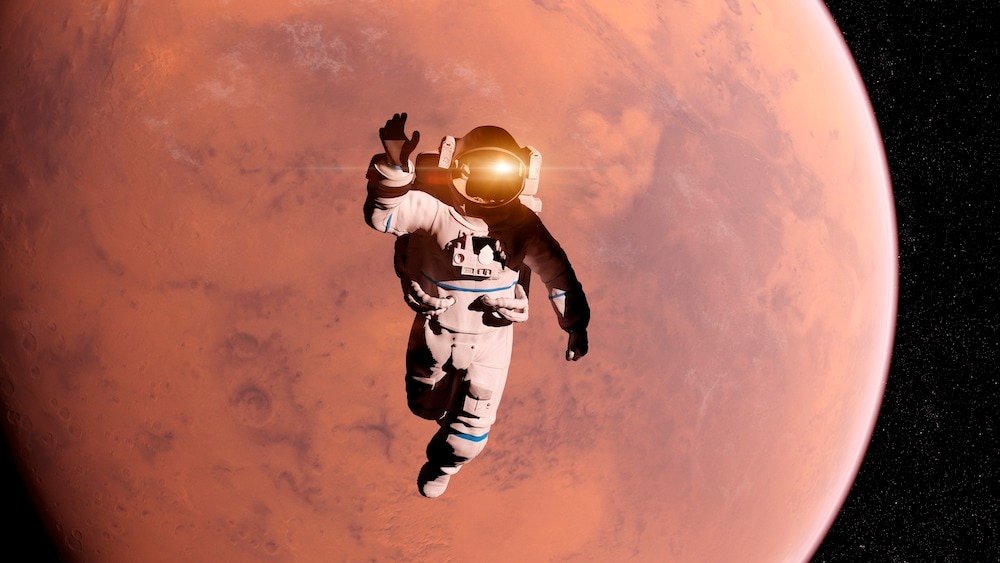Create a free profile to get unlimited access to exclusive videos, sweepstakes, and more!
Hello, anyone on the home planet? If humans move to Mars, we could get disconnected
Isolation might turn astronauts living on Mars off to mission control and into human Martians (sort of).

Future Mars-tronauts may take another giant leap for mankind, but with at least 40 million miles between us, they also could end up isolating themselves.
Astronauts who venture to Mars might turn into (human) Martians. Previous isolation experiments saw how astronauts would cope on Mars, where they would be the only humans and possibly the only life-forms for tens to hundreds of millions of miles, depending on where the Red Planet was in its orbit. Now an eerily realistic simulation has revealed how Martian communication with Earth could potentially diminish over time spent off this planet.
Earthlings are going to depend on each other, with no more of their species on a desolate frozen wasteland. This is what researcher Dmitry Shved of the Russian Academy of Sciences (RAS) found out when he ran two SIRIUS (Scientific International Research in Unique Terrestrial Station) experiments which monitored crews living in a simulated Martian environment. The results were recently published in Frontiers. How they psychologically detached themselves from mission control was somewhat unnerving.
"This was probably caused by progressive increase in crew autonomy,” Shved told SYFY WIRE. “During their adaptation, the crew members familiarized themselves with all the systems, schedules, experiments, and conditions, so their need for instructions and guidance diminished.”
Feeling like you know what you’re doing without someone telling you is going to make you more confident in your own autonomy. Mission control did try to beam over psychological support, but it didn’t help anywhere near as much as the astronauts bonding by themselves. You see this over and over again in sci-fi adventures, from Farscape to The Dark Tower (at least in the book; the storyline was warped beyond recognition in the movie). Somehow, several people, aliens, entities, whatever — often vastly different individuals — who are thrown together into a certain situation find common ground in being isolated and tough it out on their own.
With the duration of missions in space expected to increase starting with Artemis (whose first crewed mission has now been pushed back to 2025), autonomy is going to become an issue. Mars is so far away to begin with that there will be delays in communication unless we can drastically level up our technology. Never mind that astronauts will experience more stress from limited resources, sensory deprivation (because most of their time will be spent cramped in some sort of habitat without exposure to much else), and the physical effects of microgravity.
But wouldn’t astronauts feel more secure knowing that they have mission control as their lifeline? Seeing how they behaved in the experiments, it seems they found that already.
“In a real interplanetary mission, mission control's capability to provide immediate help would be severely hindered due to a significant communication delay,” said Shved. “Knowing that, the crew would rely mostly on themselves — even for survival — just like past explorers and colonists.”
Of course, the crew in the experiments already had it in the backs of their minds that they were on Earth and relatively safe no matter what happened. That might have been part of the reason they felt they didn’t need the connection with mission control so much after they had a grip on things. Even people who didn’t get along to begin with were eventually able to put their differences aside. Something that stood out was that women were more likely to show feelings of elation and sadness while men were more prone to anger. Why is unknown to Shevd for now.
“It's still hard to determine the reasons for some observed phenomena,” he said. “Also, the sample was rather small, so there could be individual differences that divided into gender subgroups by chance. That's why we need further studies.”
What exactly will happen in space remains to be seen.


























